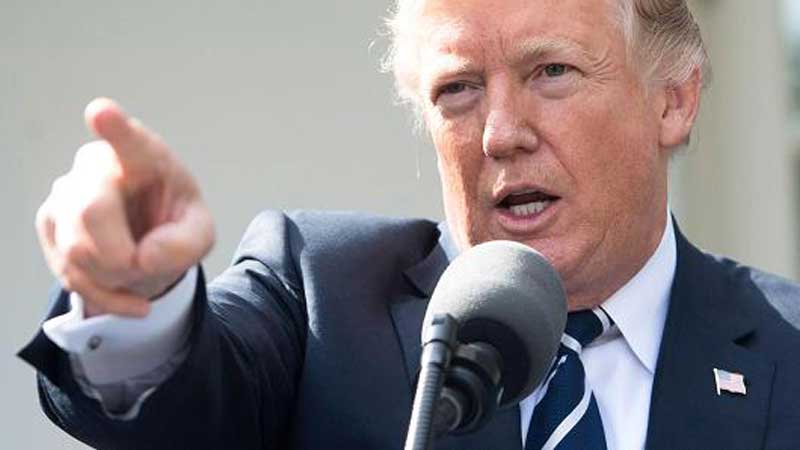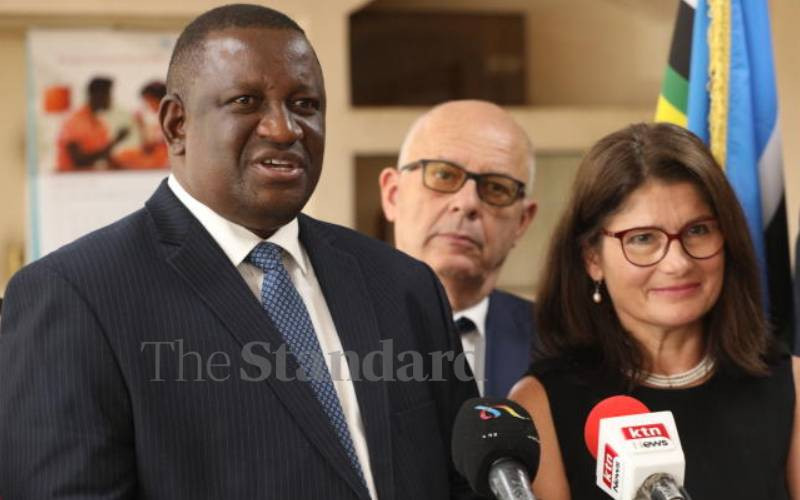
German companies should gear up for a further escalation of a swelling global trade conflict by U.S. President Donald Trump, the country's Federal Association of Wholesale and Foreign Trade (BGA) warned on Thursday.
Speaking to the newspaper "Rheinische Post", BGA president Holger Bingmann expressed concern that threats made by Trump to impose new tariffs on U.S. imports from the European Union (EU) during a NATO summit could soon become a reality.
"The measures of the U.S. government taken recently against China are a bad omen for the EU as they demonstrate Trump's willingness to escalate (the conflict)", Bingmann said.
He added that "additional tariffs on cars and car parts" from the EU could be unveiled by Washington "in the near future".
Nevertheless, the BGA president urged the German government and the European Commission to exercise restraint in response to Trump's heated rhetoric.
Instead, Bingmann argued that a de-escalation and continuation of talks over mutual tariff reduction between the EU and US would be a "better solution".
Richard Grenell, the U.S ambassador to Germany, recently informed carmakers Volkswagen, Daimler and BMW during a secret meeting in Berlin that he had been tasked by Trump with finding a solution to the swelling trade conflict between the U.S. and EU.
Towards this end, Washington was willing to consider a "zero option" of mutual tariff elimination in automotive trade and reductions of non-tariff barriers in the industry.
German Chancellor Angela Merkel and German business associations have repeatedly called for mutual tariff reductions as a means to repair strained transatlantic ties and help improve the export competitiveness of the U.S. economy.
The EU has so far reacted to U.S. imposition of punitive tariffs on imports of steel and aluminum from the bloc by filing a lawsuit at the World Trade Organization (WTO) against Washington.
It had also unveiled retaliatory measures targeted at specific U.S. exports such as Bourbon whisky and motorcycles by Harley Davidson, which subsequently announced that it would shift parts of it U.S. production abroad to evade resulting new duties in a significant blow to Trump's "America First" doctrine.
It remains unclear how German policymakers would react to an attempt by Trump to hit its vital national automotive industry with tariffs as well.
German minister for the economy Peter Altmaier has said that Berlin plans to wait until after a closely-watched meeting between EU commission president Jean-Claude Juncker and Trump in Washington in late July before deciding on how to further proceed in the trade conflict.
Stay informed. Subscribe to our newsletter
 The Standard Group Plc is a
multi-media organization with investments in media platforms spanning newspaper
print operations, television, radio broadcasting, digital and online services. The
Standard Group is recognized as a leading multi-media house in Kenya with a key
influence in matters of national and international interest.
The Standard Group Plc is a
multi-media organization with investments in media platforms spanning newspaper
print operations, television, radio broadcasting, digital and online services. The
Standard Group is recognized as a leading multi-media house in Kenya with a key
influence in matters of national and international interest.
 The Standard Group Plc is a
multi-media organization with investments in media platforms spanning newspaper
print operations, television, radio broadcasting, digital and online services. The
Standard Group is recognized as a leading multi-media house in Kenya with a key
influence in matters of national and international interest.
The Standard Group Plc is a
multi-media organization with investments in media platforms spanning newspaper
print operations, television, radio broadcasting, digital and online services. The
Standard Group is recognized as a leading multi-media house in Kenya with a key
influence in matters of national and international interest.










